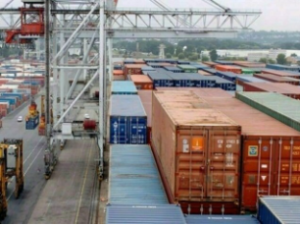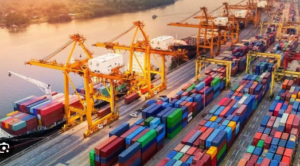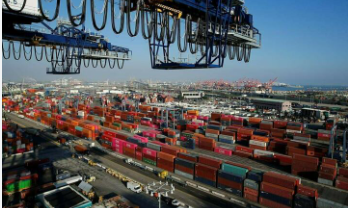Keywords:
Export Facilitation Scheme, scrap importers, money laundering, Brass Manufacturing Association, FBR investigation, Pakistan copper industry, export scheme misuse, compressor and motor scrap, copper ingots, export-oriented industries.
The Brass Manufacturing Association (BMA) has called for the suspension of Pakistan’s Export Facilitation Scheme amid serious allegations of misuse by scrap importers, potentially linked to money laundering activities. The Federal Board of Revenue (FBR) is now considering a thorough investigation into these claims, which could result in the scheme’s cancellation if substantiated.
Misuse of Export Facilitation Scheme Uncovered
The Export Facilitation Scheme, designed to support export-oriented industries by allowing the duty-free import of raw materials for manufacturing, has allegedly been exploited by certain scrap importers. According to an official document obtained by The Express Tribune, these importers are importing compressor and motor scrap under the guise of manufacturing copper ingots and products for export. However, instead of utilizing the scrap for manufacturing, they are reportedly selling it in the local market, undermining genuine exporters and the very purpose of the scheme.
BMA’s Call for Action
In a formal letter to the FBR, the Brass Manufacturing Association of Pakistan has highlighted that the imported compressor and motor scrap is not a primary raw material for copper ingot manufacturers. Genuine copper exporters rely on copper scrap, not the materials currently being imported under the scheme. The BMA claims that these scrap importers are sidestepping the manufacturing process by selling the imported scrap domestically and then fulfilling their export quotas by purchasing copper ingots at inflated prices.
This alleged practice not only disadvantages legitimate exporters but also raises concerns about potential money laundering activities. The BMA has urged the FBR to take immediate action, including the possible suspension of the Export Facilitation Scheme, until a thorough investigation can be conducted.

FBR’s Response and Next Steps
The FBR has already released a draft of proposed rules to address these concerns and is seeking feedback from stakeholders. However, no official notification has been issued yet. The FBR is also looking into reducing the value of input goods equivalent to waste in the recycled copper sector as a precautionary measure.
If the allegations are confirmed, the FBR may take stringent actions against those involved, including the possible suspension of the Export Facilitation Scheme. A final decision will be made after the investigation is concluded.

Implications for the Copper Industry
The alleged misuse of the Export Facilitation Scheme could have far-reaching implications for Pakistan’s copper industry. The scheme was intended to promote manufacturing, job creation, and increased exports. However, if the current allegations hold true, it could be facilitating trading practices that undermine these goals.
The BMA has emphasized that only 10% of the copper derived from compressor and motor scrap is being used in value-added exports, with the remaining 90% sold locally. This discrepancy suggests that some importers are more focused on domestic trading rather than supporting export-oriented manufacturing, as the scheme intended.The Export Facilitation Scheme, introduced to bolster Pakistan’s export-driven economy, allows duty-free import of raw materials for manufacturing goods intended for export. However, recent revelations suggest that some scrap importers have been exploiting this scheme. Instead of using the imported compressor and motor scrap to manufacture copper ingots and other copper products, they are allegedly selling it in the domestic market, undermining the scheme’s primary objective.According to an official document reviewed by The Express Tribune, the BMA has identified that only 10% of the copper extracted from this scrap is being utilized in value-added exports, while a staggering 90% is diverted for local sale. This practice not only distorts the market but also threatens the viability of legitimate copper exporters who rely on the scheme to compete internationally.
The copper industry in Pakistan is a vital component of the manufacturing sector, contributing significantly to both domestic supply and export revenue. In 2023, the sector’s exports amounted to over $200 million, with copper ingots and finished products being key contributors. The Export Facilitation Scheme was designed to boost these figures by lowering production costs and encouraging value-added exports.
However, the alleged misuse of the scheme by scrap importers could jeopardize these gains. The BMA has warned that if these practices continue unchecked, they could lead to a decline in export competitiveness, reduced foreign exchange earnings, and potential job losses in the copper manufacturing sector.
In light of these allegations, the BMA has formally requested the FBR to suspend the Export Facilitation Scheme until a comprehensive investigation is completed. The association has also urged the FBR to impose stricter controls and monitoring mechanisms to prevent future misuse.
The BMA’s letter points out that compressor and motor scrap are not primary raw materials for copper ingot manufacturers. Instead, copper scrap is the key input for producing high-quality copper products. By importing and selling compressor and motor scrap domestically, these importers are inflating the costs for legitimate exporters who are forced to purchase copper ingots at higher prices to meet export obligations.
In response to these concerns, the FBR has issued a draft of proposed rules aimed at tightening the regulations surrounding the Export Facilitation Scheme. These rules include measures to reduce the value of input goods equivalent to waste in the recycled copper sector, ensuring that more of the imported materials are used in value-added exports rather than being sold locally.
The FBR has also opened the draft rules for stakeholder feedback, signaling its willingness to incorporate industry input before issuing an official notification. The outcome of this consultation process will be crucial in determining the future of the scheme.

The potential suspension of the Export Facilitation Scheme could have widespread repercussions for Pakistan’s copper industry. If the scheme is suspended, copper manufacturers may face increased costs due to the loss of duty-free imports, which could, in turn, reduce their competitiveness in international markets.
Moreover, the alleged involvement of money laundering adds another layer of complexity to the situation. The FBR’s investigation will need to address these concerns to restore confidence in the scheme and ensure that it serves its intended purpose of promoting export-oriented manufacturing. The unfolding controversy surrounding the Export Facilitation Scheme has placed a spotlight on the need for stricter oversight and regulation. The FBR’s forthcoming investigation and potential suspension of the scheme will be crucial in determining the future of this initiative and its impact on Pakistan’s copper industry.
